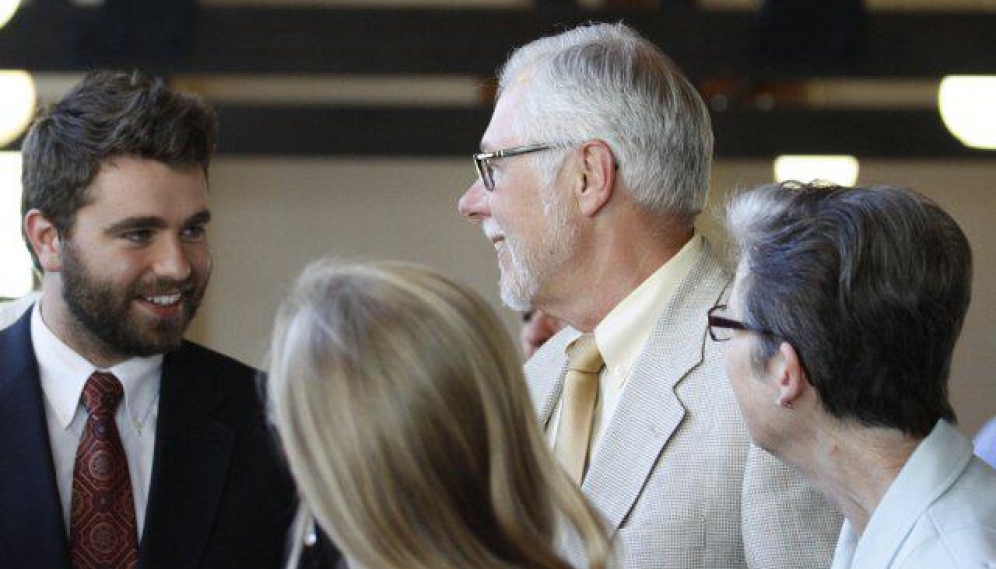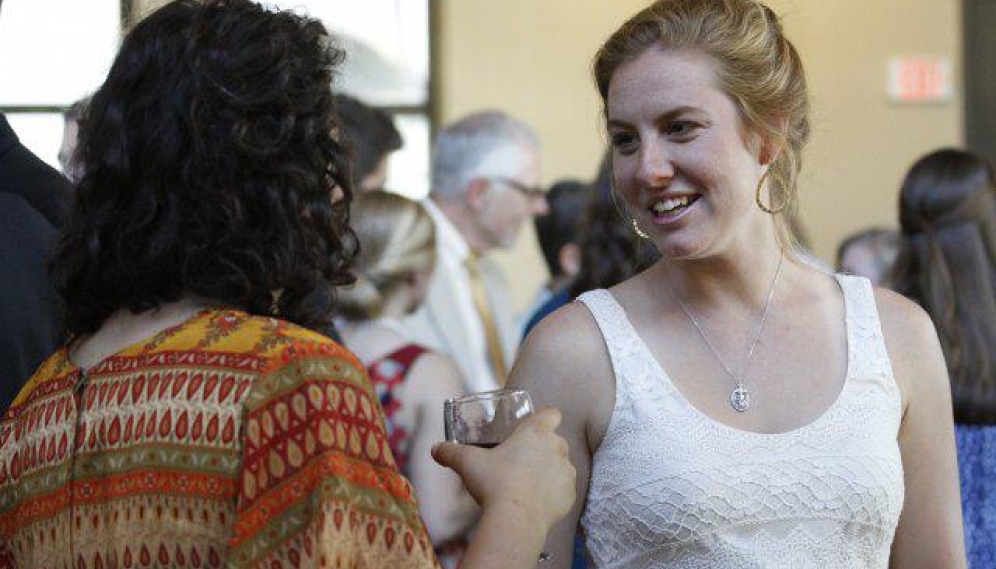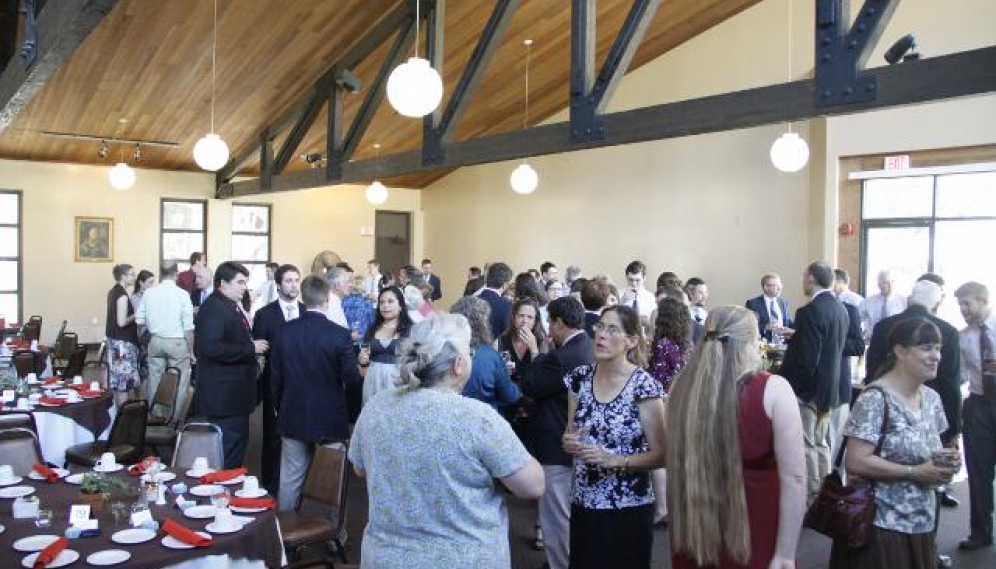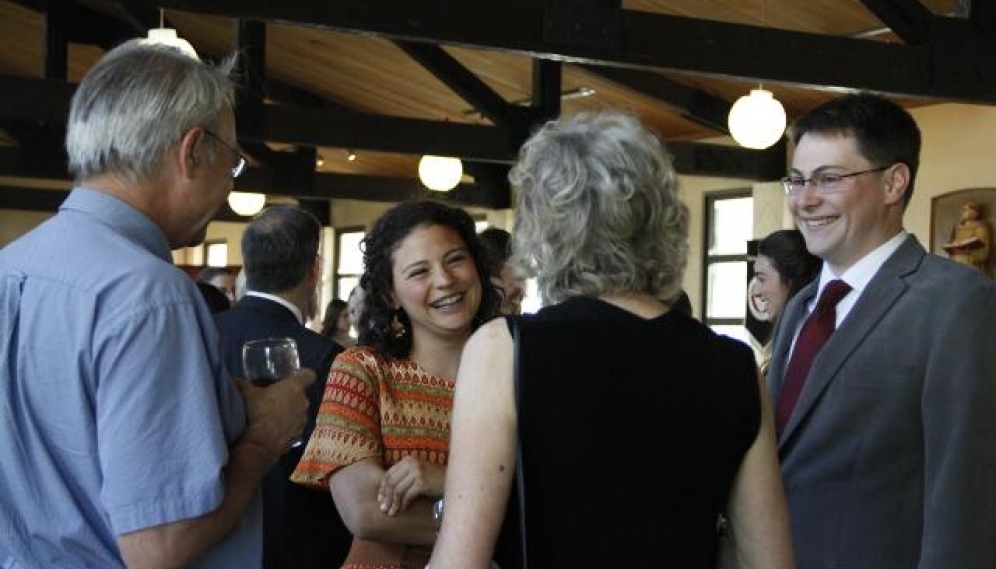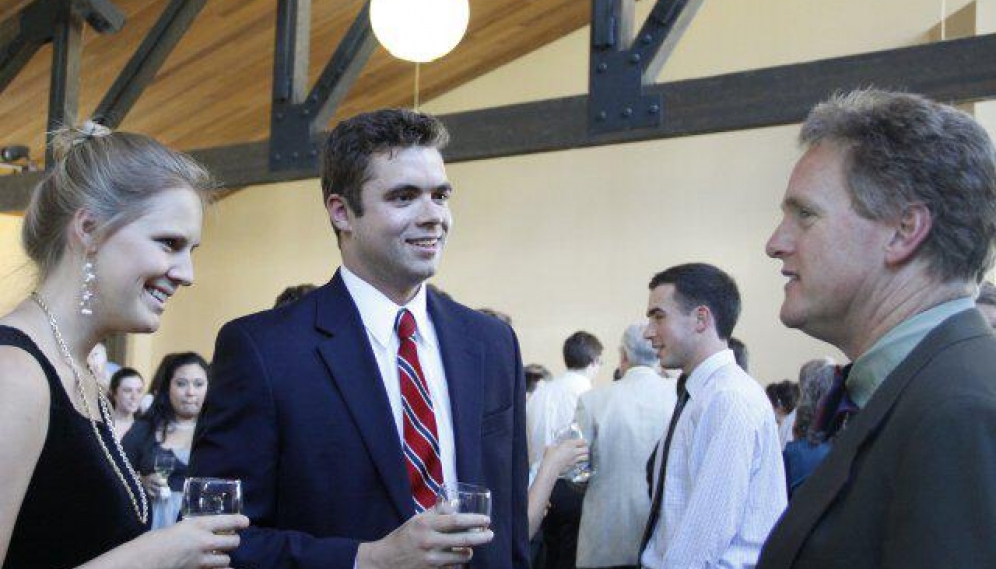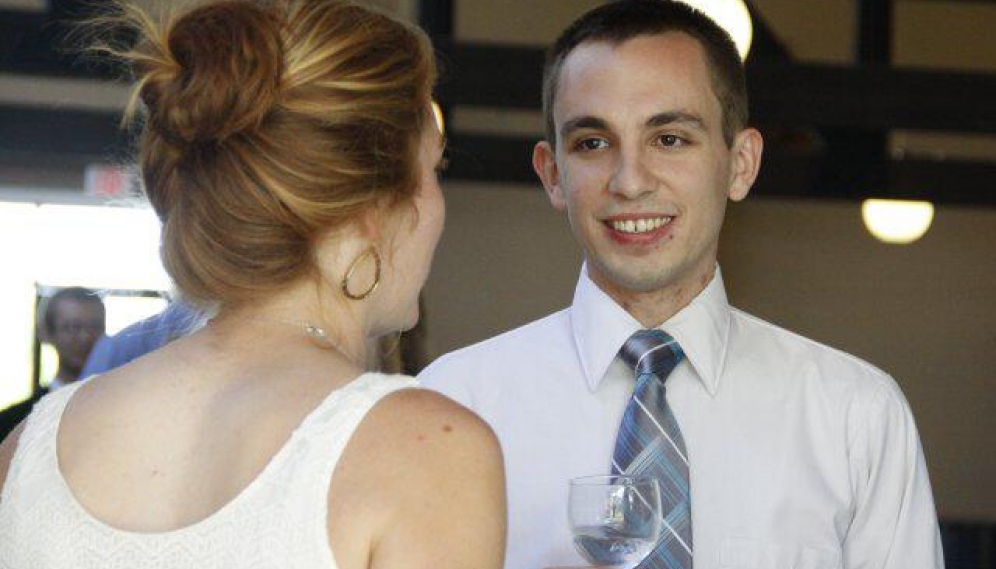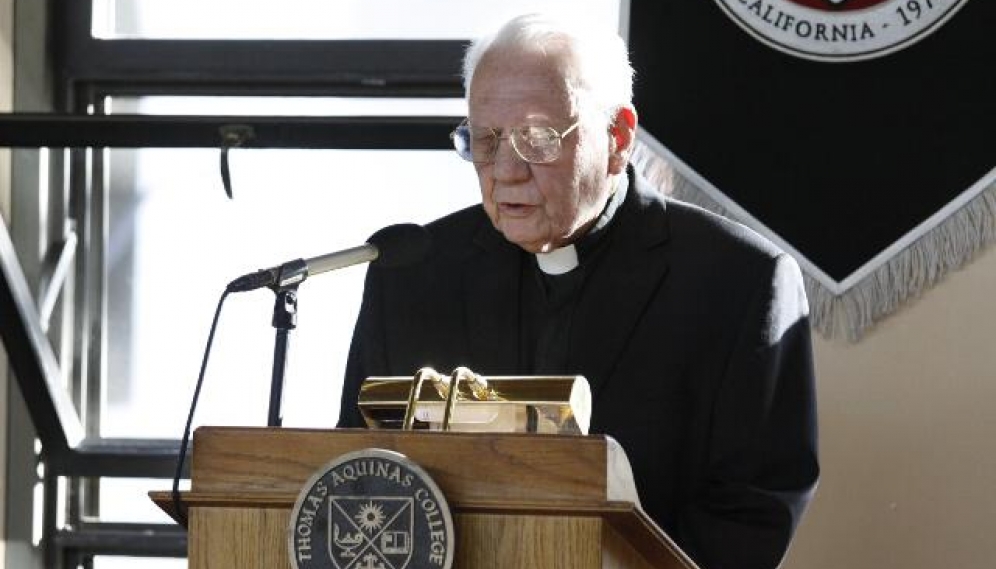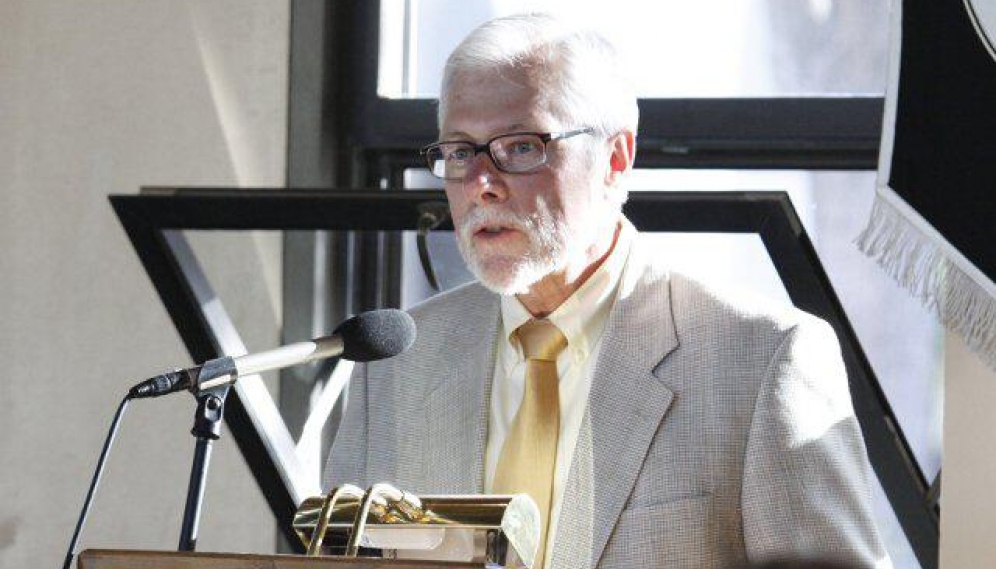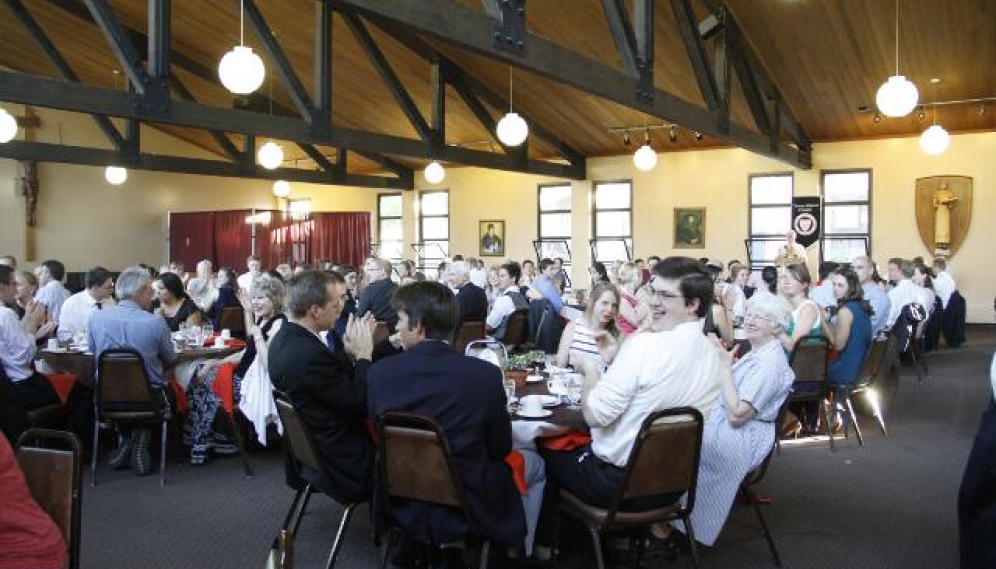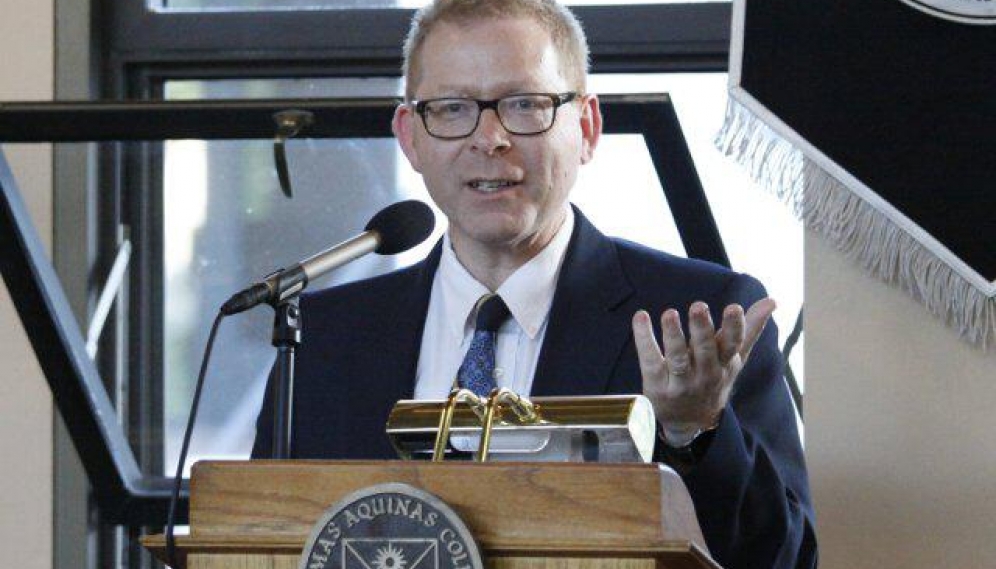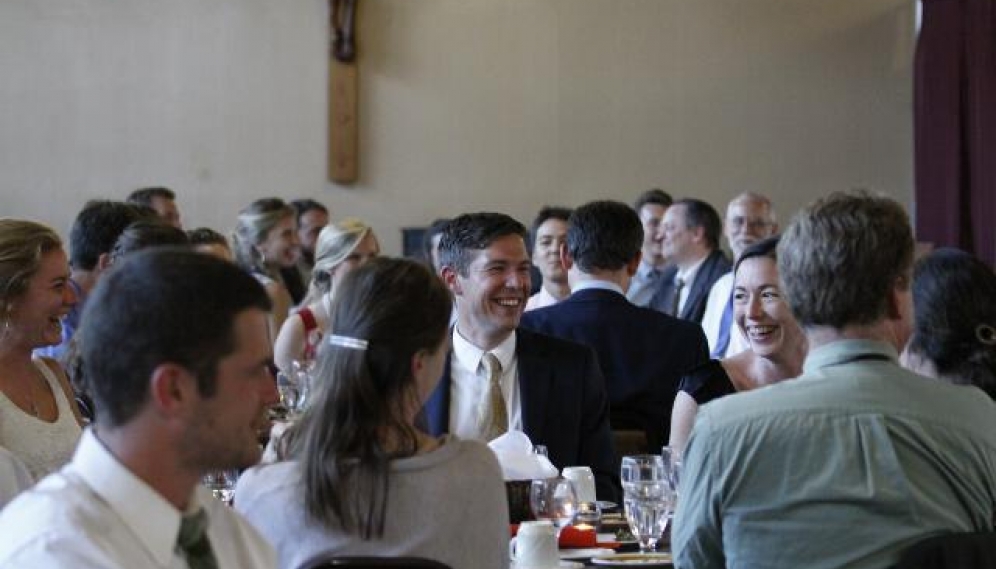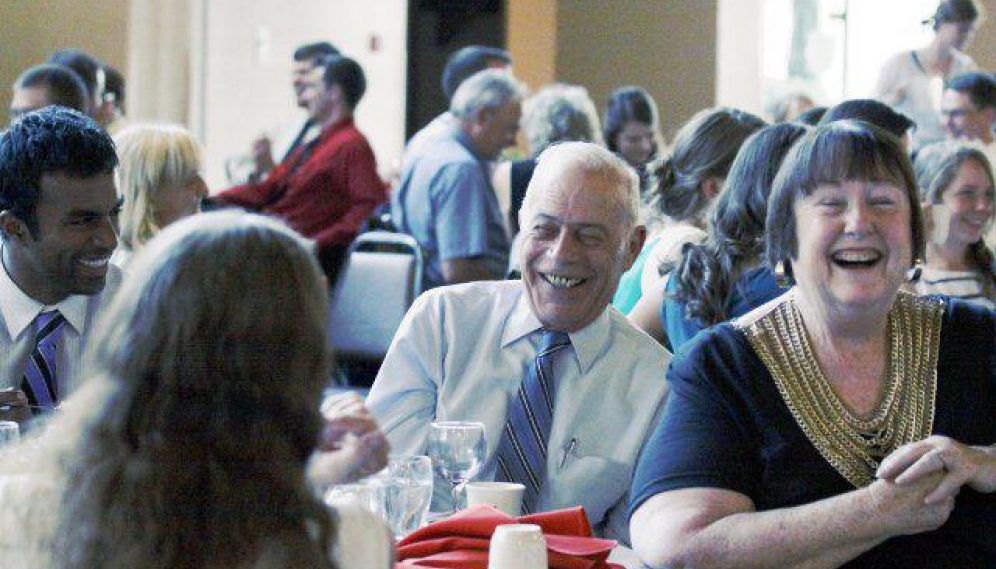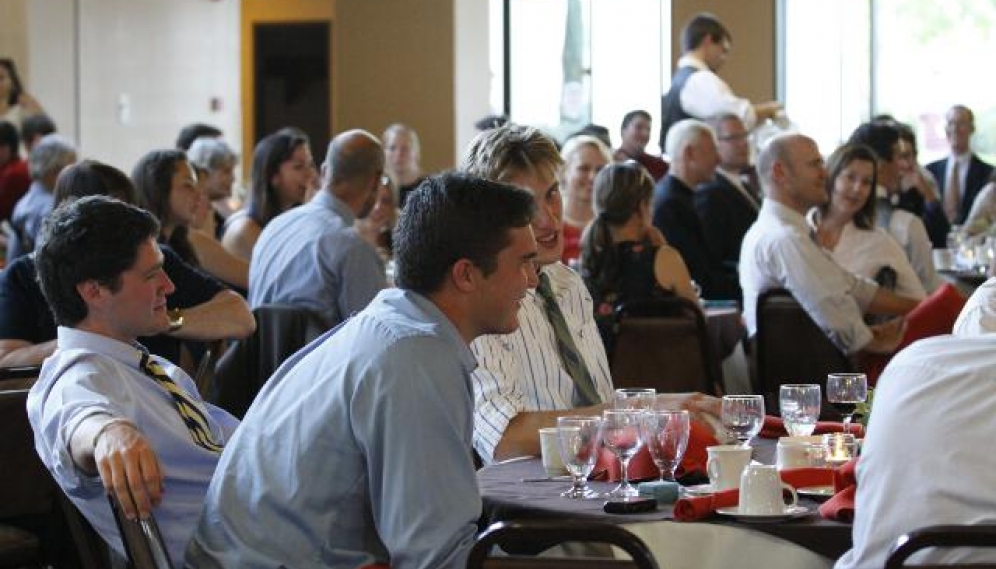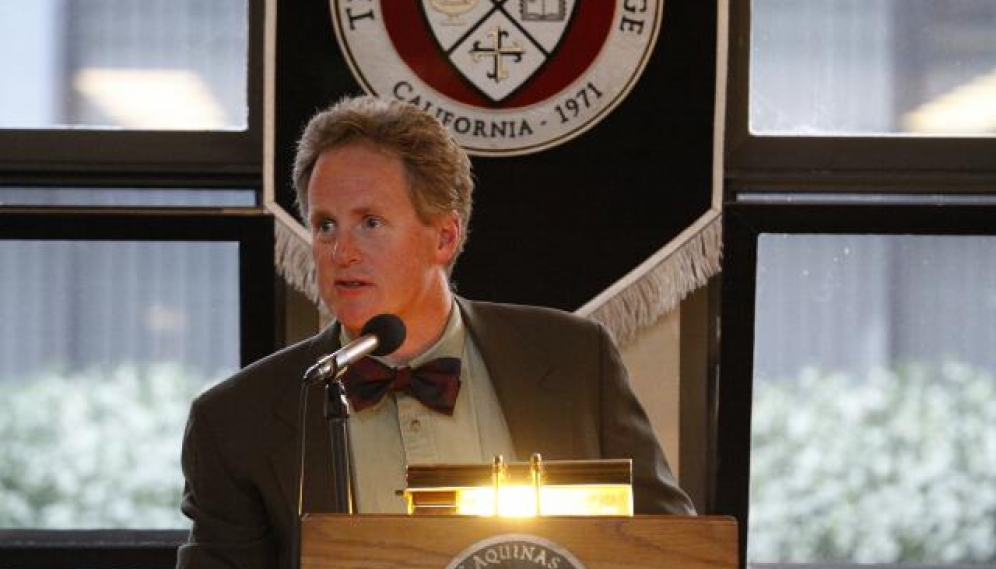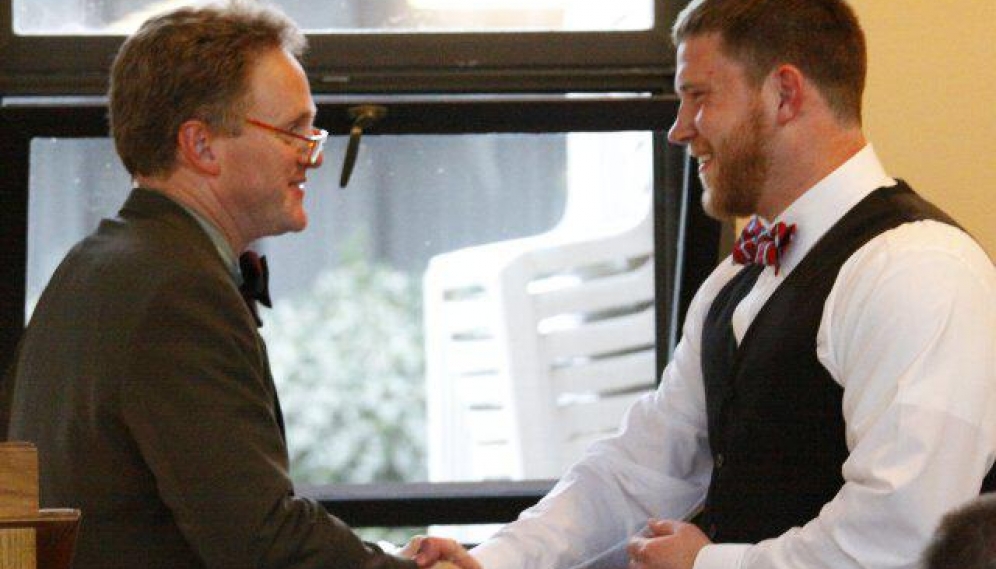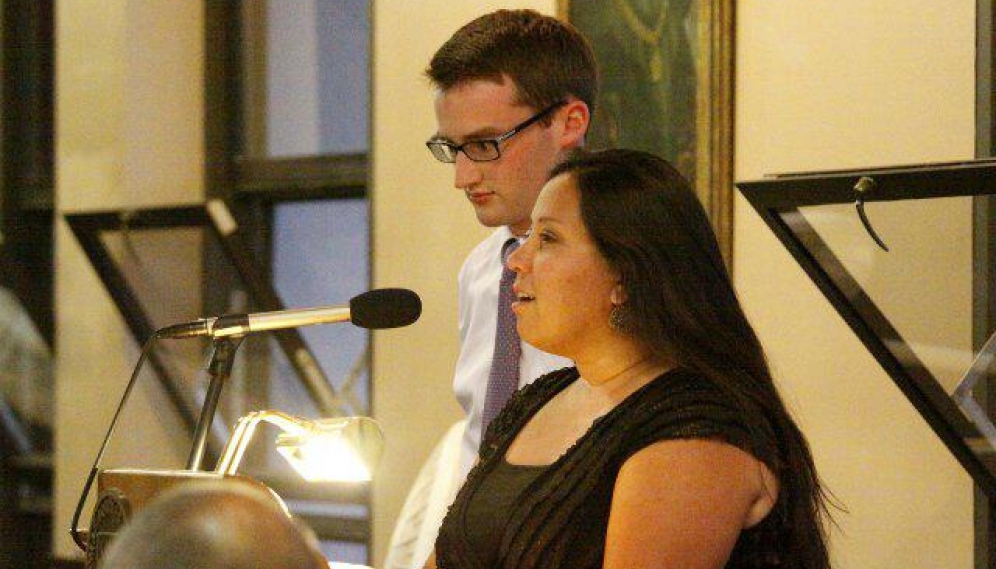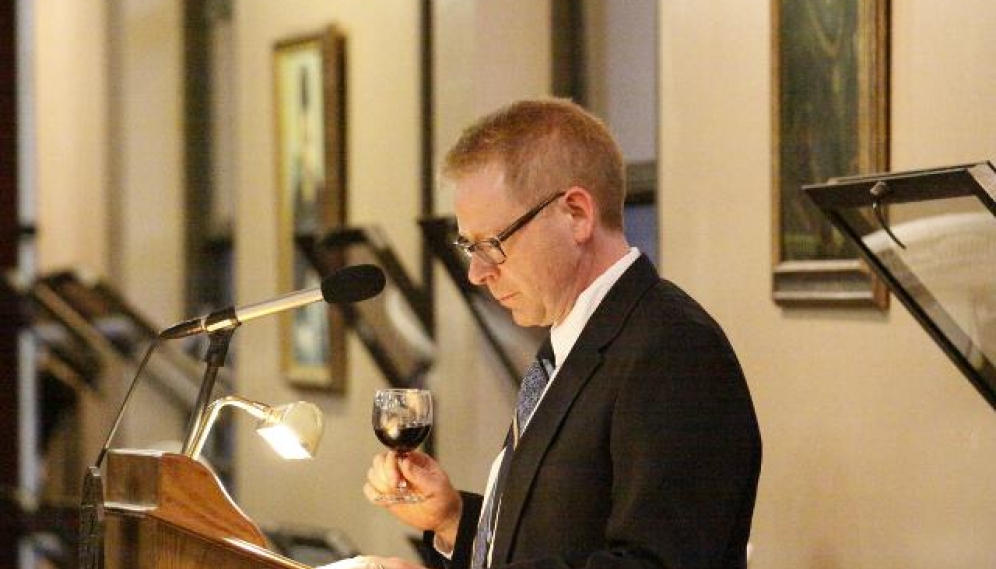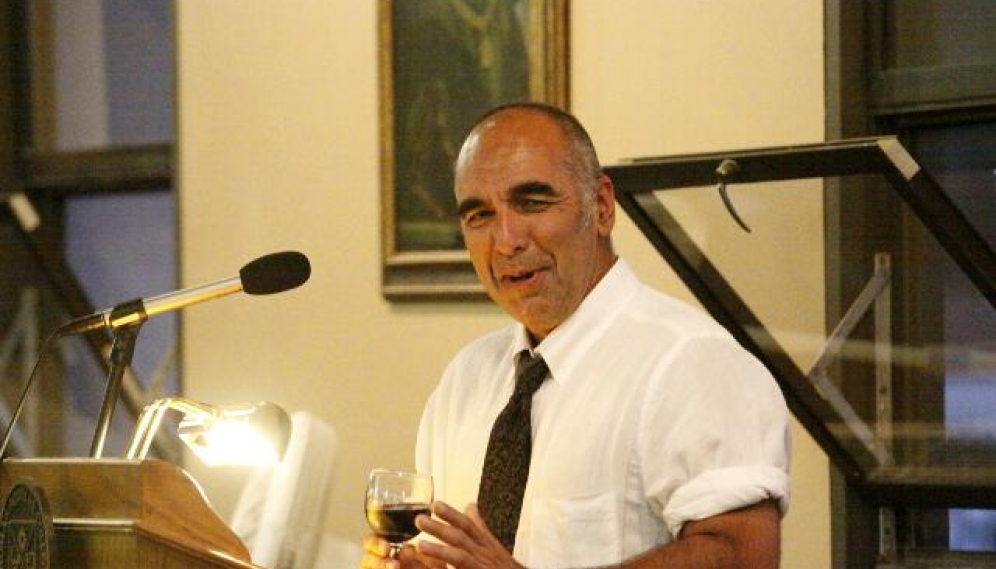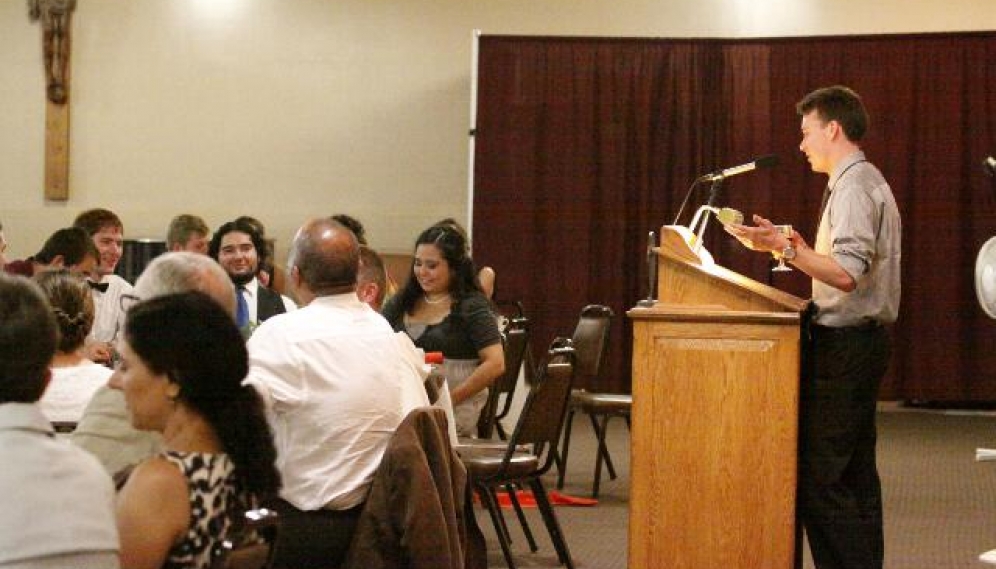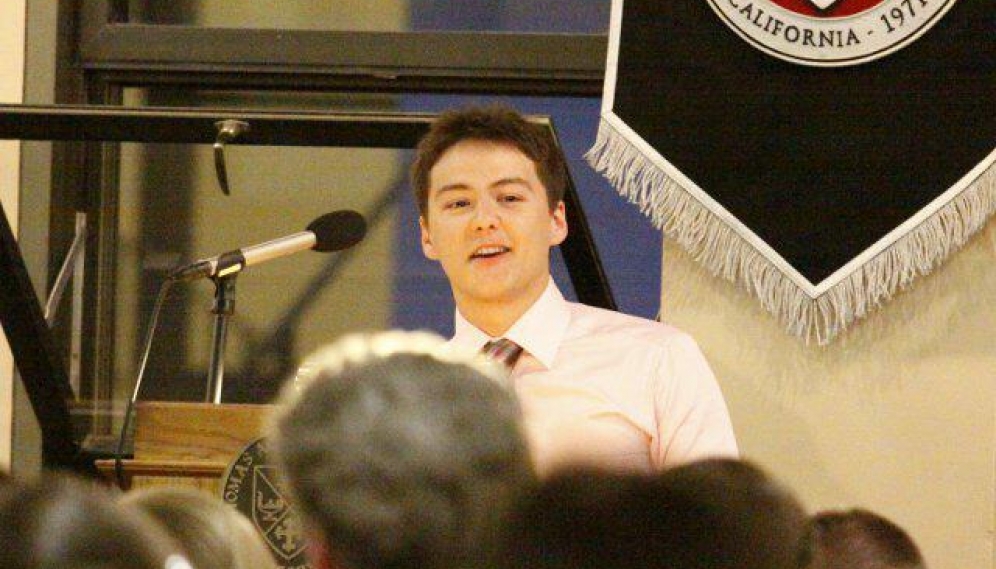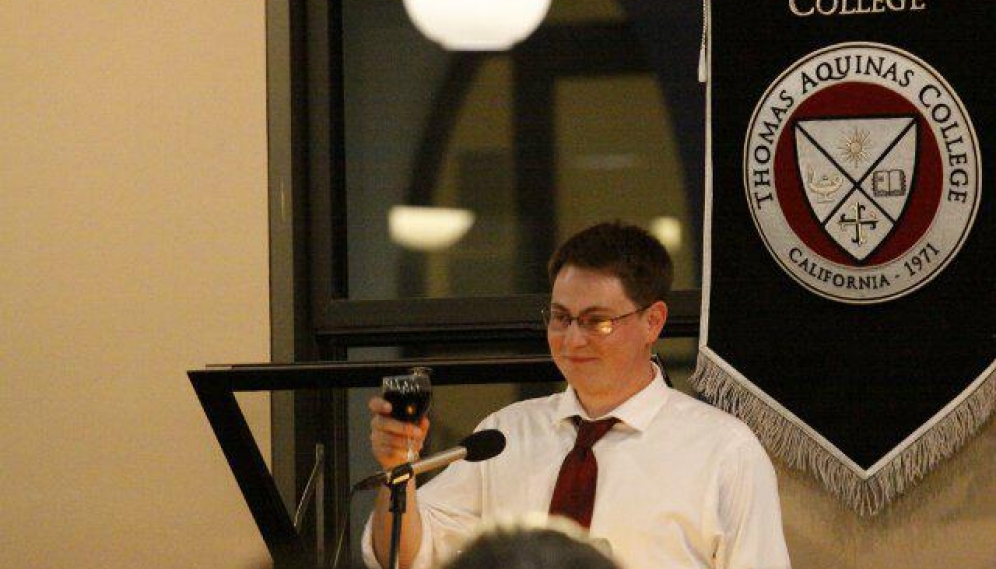- Home
-
About
 Fidelity & Excellence
Fidelity & ExcellenceThomas Aquinas College is unique among American colleges and universities, offering a faithfully Catholic education comprised entirely of the Great Books and classroom discussions.
-
A Liberating Education
 Truth Matters
Truth MattersTruth, and nothing less, sets men free; and because truth is both natural and supernatural, the College’s curriculum aims at both natural and divine wisdom.
-
A Catholic Life
 Under the Light of Faith
Under the Light of FaithThe intellectual tradition and moral teachings of the Catholic Church infuse the whole life of Thomas Aquinas College, illuminating the curriculum and the community alike.
-
Admission & Aid
 Is TAC Right for You?
Is TAC Right for You?Do you enjoy grappling with complex questions? Are you willing to engage in discussions about difficult concepts, with the truth as your ultimate goal?
-
Students & Parents
 Mind, Body & Spirit
Mind, Body & SpiritThere is always something to do at TAC — something worthwhile, something fulfilling, and something geared toward ever-greater spiritual and intellectual growth.
-
Alumni & Careers
 What Can You Do with a Liberal Education?
What Can You Do with a Liberal Education?Nothing speaks more to the versatility of the College’s academic program than the good that our alumni are doing throughout the Church and the world.
- Search
- Giving
Remarks and Slideshow: The President’s Dinner 2014
Note: Each year the president of Thomas Aquinas College hosts a dinner on the Wednesday before Commencement as a chance for members of the faculty and staff to bid farewell to the graduating class. The President, Dean, and Assistant Dean all speak to the Seniors and, customarily, the Seniors present a gift to the College. Below are President Michael F. McLean’s remarks and a photographic slideshow from this year’s dinner.
Address to the Class of 2014
By Dr. Michael F. McLean
President, Thomas Aquinas College
May 14, 2014
It can be humbling for those of us engaged in the active life, and perhaps as well for you, most of whom are about to embark on an active life, to consider St. Thomas’s many reasons for saying that the contemplative life is more excellent than the active life. I’ll pass over his first eight reasons and go right to the ninth: “Our Lord adds a ninth reason,” St. Thomas says, “when He says: ‘Mary has chosen the best part, which shall not be taken away from her.’”
In expounding this text, St. Thomas appeals to Augustine, who says: “Not — Thou hast chosen badly but — She has chosen better. Why better? Listen — because it shall not be taken away from her. But the burden of necessity shall at length be taken from thee, whereas the sweetness of truth is eternal.”
We ought to be encouraged, however, by other things St. Thomas says when comparing the active and contemplative lives. For example, immediately after the text I just cited, he says: “Yet in a restricted sense and in a particular case one should prefer the active life on account of the needs of the present life. Thus, too, the Philosopher says: ‘It is better to be wise than to be rich, yet for one who is in need, it is better to be rich.” Eminently sound advice from an eminently practical man, not to be forgotten — especially when it comes to the financial needs of the College!
Another encouraging remark is found in the next article where St. Thomas argues that the contemplative life is of greater merit than the active life. “Nevertheless,” he says, “it may happen that one man merits more by the works of the active life than another by the works of the contemplative life. For instance through excess of Divine love a man may now and then suffer separation from the sweetness of Divine contemplation for the time being, that God’s will may be done and for His glory’s sake. Thus the Apostle says: ‘For I could wish that I myself were accursed and cut off from Christ for the sake of my brethren’ which words Chrysostom expounds as follows: ‘His mind was so steeped in the love of Christ that, although he desired above all to be with Christ, he despised even this, because thus he pleased Christ.’”
Finally, in the following article, where St. Thomas says that “the active life hinders the contemplative, in so far as it is impossible for one to be busy with external action, and at the same time give oneself to Divine contemplation,” he also says “the active life may be considered as quieting and directing the internal passions of the soul; and from this point of view the active life is a help to the contemplative, since the latter is hindered by the inordinateness of the internal passions. Hence Gregory says: ‘Those who wish to hold the fortress of contemplation must first of all train in the camp of action.’”
I find these comments of St. Thomas encouraging, and I hope you do too, because Martha’s plight is really the plight of us all: “Martha was distracted with much serving; and she went to Him and said, ‘Lord do you not care that my sister has left me to serve alone? Tell her then to help me.’” The demands of the active life press upon us, but to the extent that we imitate Martha’s love and her service — she, after all, “received him into her house” — the active life pertains to charity and so can be a preparation for the contemplative life and a means to our salvation.
The life of your class patron, St. Kentigern, after whom our late and dearly beloved friend and classmate, Kent Moore, was named, bore witness to the ordination of the active life to the contemplative life as well as to the tension that sometimes exists between them. St. Kentigern actively labored as a bishop, living an austere life and making many converts by his holy example and preaching. His work culminated, however, in the founding of a large contemplative monastery in Wales of which he was the first superior. Called by King Roderick from the contemplative life back to the active life in Scotland, however, St. Kentigern continued to preach and evangelize until founding the See of Glasgow in 581, where he served until his death in 603. St. Kentigern is an excellent model — he seems to have been a man who fulfilled his duties, despite, perhaps, his own personal preferences, and who combined well the active and contemplative lives.
I offer these brief reflections on the active and contemplative lives because they look forward to your pursuits after graduation and because I am often asked, as I suspect you have been and will be often asked, “what good is a liberal education?” “What have you spent your time and money doing these past four years?” I submit that a very good answer would be “preparing well for the active and contemplative life.”
Consider some of the extremely important and, I would say, eminently practical things you have learned in your time here. From Socrates, that honest and heartfelt conversation about serious and fundamental things is an integral part of the “examined life.” From Aristotle, that life is not about the acquisition of wealth, the attainment of honor, or the pursuit of pleasure, but rather is about the cultivation of intellectual and moral virtue in the company of good friends. From Sophocles and St. Thomas, that human law must reflect the natural and eternal law and be ordered to the common good. From Scripture and Shakespeare, that we are called to serve others and to love our neighbors as ourselves. From Augustine and Dante, that “our hearts are restless until they rest in Thee,” and that life is ordered to the attainment of heaven.
These are but a few examples, but if you were to consider the matter carefully and at greater length, you would see that your education has been practical in the deepest sense — that it has drawn your attention to the things that make life most worth living and, to that extent, has been an excellent preparation for the active life and for the contemplative life to which the active life is ordered.
To the question, though, of what you can do with your education, I would offer some reassurance: while it seems to make sense that students ought to pursue programs narrowly focused on the labor market — at least to the extent that jobs are the be all and end all of education — there is growing evidence that this narrow focus may not work. As an article in the Wall Street Journal pointed out recently, “nobody can predict where the jobs will be — not the employers, not the schools, not the government officials who are making loud calls for vocational training. The economy is simply too fickle to guess way ahead of time …[and] choosing the wrong path could make things worse, not better.”
Moreover, the article continues, “a narrow educational focus would have forced you to pick a career at 17, before you knew much about your interests and abilities. An incorrect choice would require starting over again later on, a not always easy thing to do.”
It is better, then, to have taken the logic class that we hope improved your thinking and reasoning skills and the seminar that we hope improved your writing and reading skills. For these, along with the conversational and analytical skills you have picked up along the way, will help in any field. As you consider what you will do, be assured of the value of your education, be confident in articulating its strengths, and always remember that you are better prepared than you might think for doing something important and rewarding, something of service to your Church, to your country, and to your community.
Utilitarian concerns inevitably play a role in life and must be taken seriously. Unfortunately, however, they have become a virtual obsession in education and in the broader culture today. The real answer to the question about the good of your education is found in St. Paul’s Epistle to the Colossians: “If, then, you were raised with Christ, seek what is above, where Christ is seated at the right hand of God. Think of what is above, not of what is on earth.” The curriculum of the College, ordered as it is to Catholic philosophy and theology, has helped you to grow in the knowledge and love of God while the moral and spiritual life of the College has fostered and strengthened your personal relationship with Christ. These are great gifts, examples of the higher things of which St. Paul is speaking.
I am certain that God has a plan for each and every one of you, and that one of the greatest gifts you have received here is the ability to quiet your soul and to hear His voice. This is excellent preparation for discerning whatever work you are called to do. Together with the other gifts you have received, it is also excellent preparation for confronting the atheism and relativism of our time and for heeding St. John Paul II’s call in your class quotation “to work with God in the building of the civilization of love.” These things many of you will do by engaging in spiritual and corporal works of mercy, acts of charity which are the summit of the active life. Finally, and most importantly, your education has put you on a path which, if you follow it faithfully, will one day lead to your joining the angels and the saints, among whom, we trust, is Kent Moore, in seeing God in the beatific vision.


